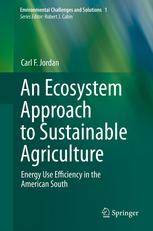

Most ebook files are in PDF format, so you can easily read them using various software such as Foxit Reader or directly on the Google Chrome browser.
Some ebook files are released by publishers in other formats such as .awz, .mobi, .epub, .fb2, etc. You may need to install specific software to read these formats on mobile/PC, such as Calibre.
Please read the tutorial at this link: https://ebookbell.com/faq
We offer FREE conversion to the popular formats you request; however, this may take some time. Therefore, right after payment, please email us, and we will try to provide the service as quickly as possible.
For some exceptional file formats or broken links (if any), please refrain from opening any disputes. Instead, email us first, and we will try to assist within a maximum of 6 hours.
EbookBell Team

4.4
72 reviewsModern industrial agriculture is not sustainable because of its heavy reliance on petroleum, a non-renewable source of the energy used in farming, and because of pollution caused by petroleum products such as fertilizers and pesticides. A systems analysis of farming suggests that agriculture will be more sustainable when services of nature, such as nutrient recycling by soil micro-organisms and natural controls of insects, replace the services now provided by energy from petroleum. Examples are drawn from the Southeastern USA, but lessons learned can be applied worldwide.